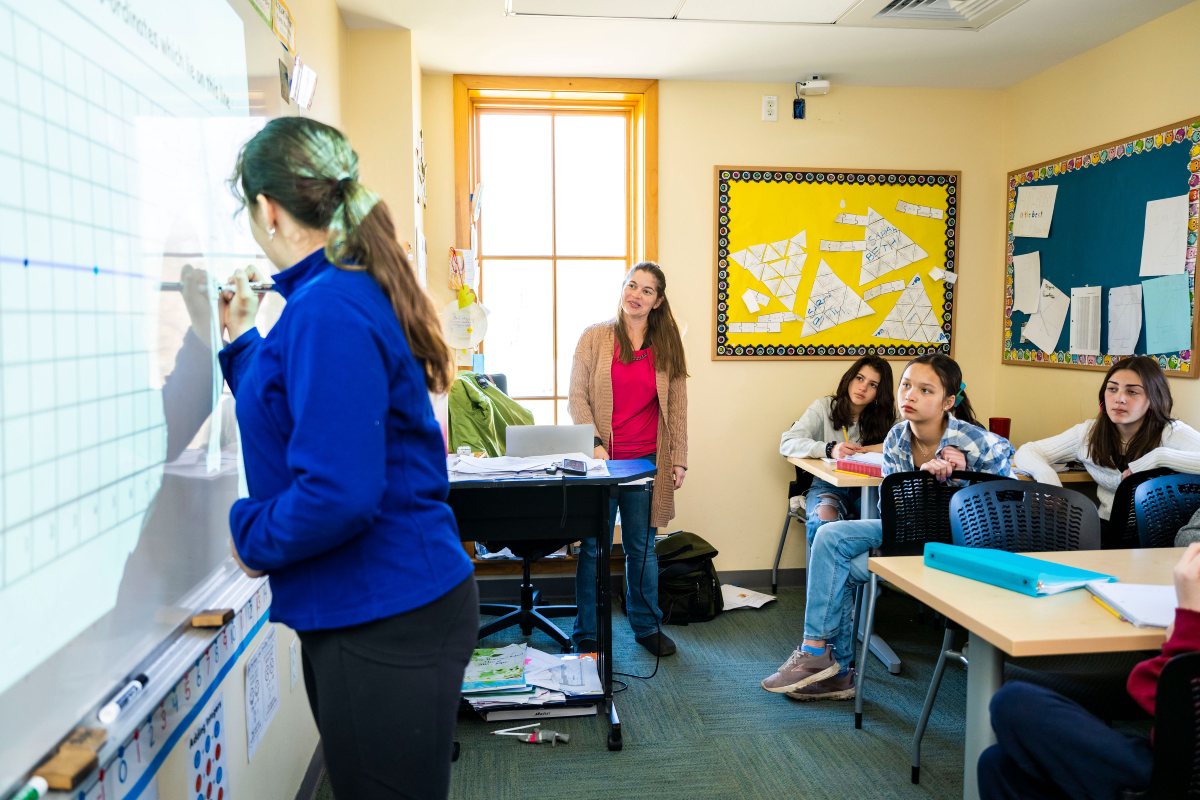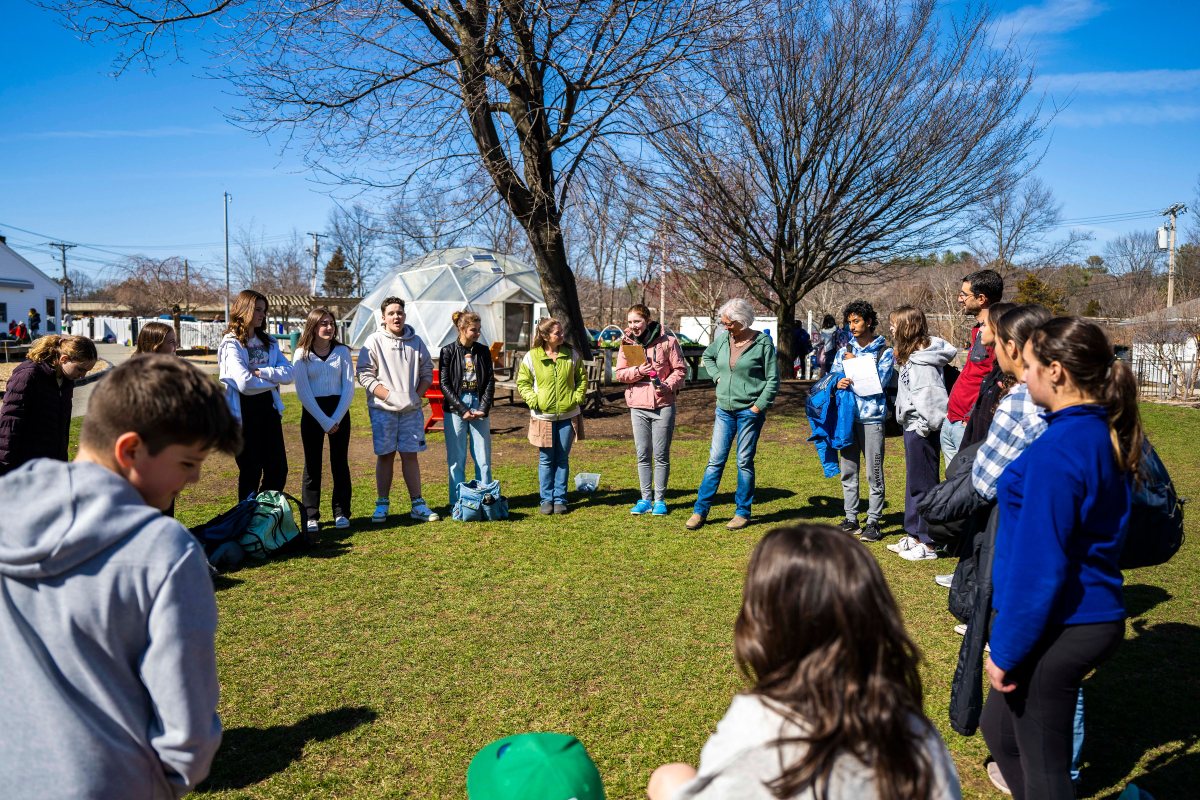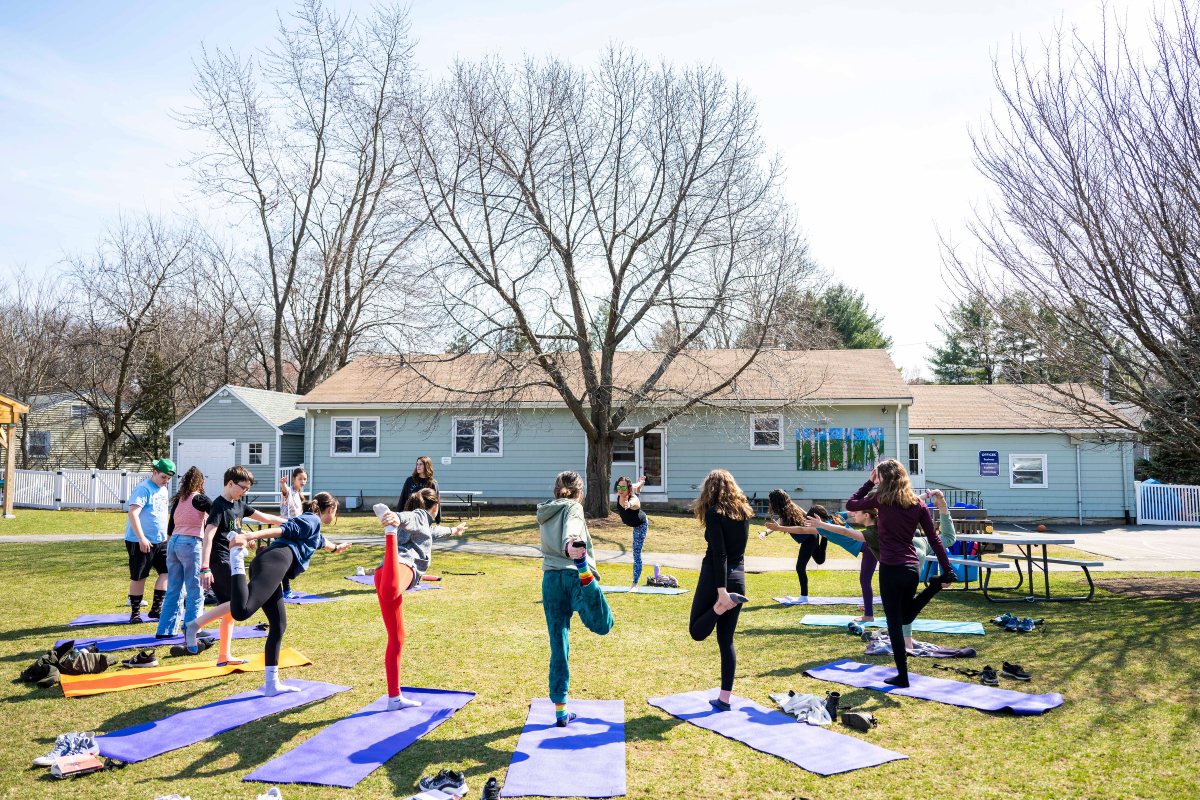The LMS Middle School Program is for students ages twelve - fourteen years old. Seventh and eighth grade at LMS is an ideal community for early adolescents. Students can stretch themselves, take academic risks, and learn about themselves as leaders and blossoming young adults.
A typical day in Middle School resembles a more traditional school day, where students move from class to class at a certain time. Students engage in academic classes throughout the day (math, writing/literature, science, history, Spanish) in small groups, mostly mixed-ages. Each day begins with an advisory group, and throughout the week there are independent work blocks, committee time, and community meetings. Typical activities during the day range from taking a quiz, to doing a lab activity, to reading an article, to having a Socratic seminar, to peer editing an op-ed, to rehearsing a play, to solving a math challenge, to running a small business, to planning a community event. Middle School students also participate in longer blocks of Athletics (off campus), art or music studio work (on campus). Each day ends with a closing meeting.
Every Thursday is a Half Day for LMS children with the exception of Middle School students who participate in Athletics. Click here to read about the Professional Development our Faculty and Staff complete on Thursday afternoons.
Big Themes
The Middle School curriculum is designed to appeal to students’ intrinsic motivation. The year’s curriculum is structured into big themes (Interconnectedness, Exploration, Identity, Systems), with guiding questions for each unit. The guiding questions are broad, unanswerable questions that frame collaborative explorations. They include questions like: “How did humans allow the Holocaust to happen?” “What makes something alive?” and “When people want to make change in society, how do they do it?” These questions appeal to students’ developing moral compass as they engage their emotions, as well. Students often feel driven to dig deeply into topics of this kind.


Consistent Routines
The Middle School environment is fun, engaging, and supportive. Adolescents need joy, mentorship, purpose, and deep connection. Each day begins with a small morning meeting in advisory groups, where they ceremonially ring a chime, ask each other a morning question, do some mindfulness exercises, make pertinent, daily announcements, and play games. At the end of the day, students run a closing circle, where anyone can issue last-minute reminders, and students acknowledge each other for actions taken throughout the day.
Real-World Skills
Real-world leadership skills are emphasized in the LMS Middle School. Each student leads a committee, such as a Library committee, an LMS Woods committee, a Literary Magazine committee, an Interior Decorating committee, and a Field Study committee. When a student contacts a snorkeling guide in Puerto Rico or a leader of a volunteer project in Boston, they find themselves treated as an adult, and this boosts their sense of competence. Students collaborate to plan the itinerary, meals and transportation on overseas field studies to Spain and Puerto Rico, learning and applying skills of collaboration, organization, flexibility, and leadership. In Spain, students take on the responsibility of using subway and street maps to lead the class through the city, looking for landmarks to figure out how to navigate unfamiliar streets.


Social-Emotional Development
The LMS Middle School builds community purposefully. Adolescents are experiencing rapid mental and physical growth, so they have many emergent skills. They are also developmentally inspired by social connections. Thus, harnessing their emerging skills for the good of the group is a significant part of the learning in the Middle School class. As Middle School students work to define themselves, their teachers support them in thinking about ethical issues. Students learn through conflict resolution and personal reflection when issues arise. They learn by discussing and reflecting on readings, historical situations, and films that bring up issues of identity. These activities occur in Life Ed. classes, in Advisory and Advisor check-ins, and in many conversations that teachers have with students throughout their day.




